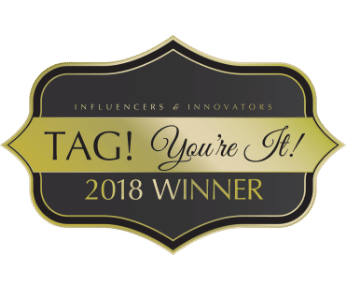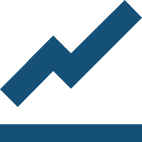Intro:
Welcome back to another episode of Shorr Solutions The Podcast. Today we have Erica Paolicelli, who is not only a partner at Three Brothers Wineries and Estates located in the Finger Lakes up in New York, and host of the Tenacious We Podcast, but she is also just a brilliant expert when it comes to running and growing her business. Not only is she knowledgeable about purchasing, branding, identity, public relations, marketing, product development, project management, financial analysis, launching new and innovative products, but I am forever grateful that Erica is also one of my very, very good friends.
Erica’s Background:
I started 13 years ago before the winery actually was open, and I had just gotten out of college. I went to Oneonta State University, it’s a SUNY school in upstate New York. I went to school actually for dietetics and when I got back home to the Finger Lakes, I was looking for a summer job. I was headed to Missouri for a master’s in exercise nutrition and to get my dietitians license, you know, you have to do a certification internship program. I was just home for the summer and I stumbled upon a job out at a little winery called Maggie’s Leland Vineyard and Winery and I thought how cool would it be if I work in the winery for the summer.
I went out there, there was a lot of building in progress. When I did go out, it looked like an abandoned kind of property with a small 10 by 10 tasting room and I thought to myself, this cannot be it, it really looked abandoned. It had a porta-potty in the parking lot and that was a hard no for me. I put my car in reverse, and as you know, it’s a warm summer day, I’m a broke college student, no air conditioning, windows down, I hear, “Hey, are you ever an interview?” Dave Mansfield, my now-partner comes walking over to my car and he says, “Are you here for an interview?” and I said, “Yeah.” I’m thinking, ah, gosh, darn it. I get out of the car. Start talking to Dave and if you’ve ever met Dave, his excitement is contagious. Long story short, I took the job and about five years later, he asked me to partner with him and his wife. Up until that time, they were the sole owners of Three Brothers Wineries, in a Warhorse Brewing Company, which is a brewery that we opened up.
Working with a partner:
Mara: Jay’s the same way! He comes up with these big bold ideas, and we’ve actually started calling them the “Hey Mar” ideas because he’ll come up with this, big bold idea, and then next thing you know, he goes, Hey, Mar, I have an idea. Now we call them “Hey, Mar” moments, and I now kind of shake my head and hide a little bit when I hear “Hey, Mar.” I know it’s something that’s going to involve like a massive project and undertaking come out. I can’t fight it, the enthusiasm is so contagious.
Erica: Dave’s phrase is, “I’m just thinking out loud, I’m just thinking out loud here.”
Exit Strategy:
Erica: As I started talking to Dave more, it became evident that he wanted me to kind of be his exit strategy at the winery. As we’ve progressed over the last almost eight years now, I bought more stock in the company with my husband, Justin, who partnered with us last year. So that’s kind of where we sit today. There’re four partners, there’s Dave and his wife, Liliana, and myself and my husband, Justin. So there’s not really three brothers. We built that brand and so we’re kind of stuck with the name, but there are not really three brothers involved in the company.
Mara: I am Jay’s exit strategy as well, and he jokes all the time that when he is ready to retire, whenever it is that he’s ready, I’m going to buy the company from him for $1. And he reminds me of this all the time, he’s like, I’ll even let you finance it. It’s an interesting concept of a way to do it. This is one thing in our industry, on the medical and aesthetic side, that is not necessarily uncommon because you might have a surgeon, you know, the owner of the practice who is at an age where they’re starting to think about what their exit strategy is. We often look at family members that want to come in and take over the practice. But if they don’t have family members that are providers, then they have to look outside of their families. You then look at what is it that makes a good partner?
Finding the Right Fit:
Mara: As we talk about partners, because obviously we are, my dad and I are obviously related. And you come from a non-family, although it’s a little different because there’s, you know, a husband and a wife as far as Dave and Liliana, and then another husband as far as you and Justin, but what would you say has worked well, and what tips would you give when it comes to working with partners of different generations? What would you say as far as helpful tips and tricks that you might give?
Erica: One thing that I think I really respect about Dave is that he knows his strengths and he guides us as we miss it. Dave is really creative, and he’s great with that idea. But when it really comes down to implementing a strategy for marketing, in branding the business that comes down to me because I have more of an understanding of what’s out there, how to put it all together, how to make it, so it’s more cohesive. I’m always trying to wrap the story back around, circle it back around so that the customer understands. I know, because of the age difference, there’s a lot of things that I understand about talking to people on the internet and strategizing about a marketing plan that has to do more with new-age marketing, than his old company, for example, was a sign company. Sometimes he’ll say, we just really need a good sign, and I’ll say, who’s signs anymore? People are looking at, their map in their car, and on their phone, they’re listening to things, etc. The generational kind of gap between us is actually, I think, a good benefit. His personality allows that to work.
Mara: There are certain things that, at their core, don’t necessarily change generation to generation, I think the art of negotiation is one of them. For me to know that in negotiating anything externally, it is absolutely valuable to have Jay come in and take over that negotiation. I think we always joke, what’s the difference between our personalities. Jay and I always say that he’s more of a hammer and I’m more of a screwdriver. I intend to be more, let’s put a plan into place for everything and slow and steady wins the race and he is more like the hammer. We know what each of our strengths are and giving each other the space to have that and continuing to value the opinion of the other. Jay will come in, for example, a lot of times and say, “Oh, I want to create this big project tomorrow figure it out” and that’s where we need to look at how that comes into play. I think that when people work with their business partners, there needs to be a certain delineation of who has final say over what. In other words, my final say within Shorr Solutions might be on the marketing side.
Implementing New Employees and Interns:
Mara: You guys do some really cool things as far as video. I always forget, is it a video intern that you have at this point? Or do you keep somebody on staff year-round?
Erica: Last year, we hired a video intern for the summer and my dream is to someday have someone full time just doing video at the winery. You do need someone who knows how to do it and could take the time to do it. Before, we tried to do video internally, and you just don’t have the time to do it correctly. You really, really need a dedicated person that understands video. Our video intern is amazing. He has a ton of his own equipment, and he’s just really excited. He’s actually kind of an unconventional intern because he has a full-time job as a music teacher, and he just loves to do video and he wanted the experience of doing the video for someone who’s kind of giving him free rein in a way. We do all the conceptualizing in house, myself, and the marketing coordinator. Now we have a few interns every summer and it’s really been a lot of fun to see them all work together and see what they come up with. We have a business intern that focuses more on the business side of things; analytics, strategy, helps us, myself, and the general manager, mostly. Then we have a video intern, a marketing intern that does more of the digital marketing stuff that’s not related to design work, although our marketing intern this year does have a lot of experience with design work, and we have an event intern to do private events.
Mara: How did you choose as an owner of the business, when it was time to hire additional team members at different levels, and then especially when it was time to bring in interns to specifically focus on something that is, really micro-focused?
Erica: When I was the general manager, Dave really pushed me to find good managers to help me because he kept saying to me, if you can’t stop doing some of this stuff, you can’t grow the business. He really was the partner that pushed that. I learned that from him, there definitely is a right time. I’m not a big believer that you have to really have the income first before hiring for certain positions. I actually am really a numbers person, I do a lot of forecasting and I have more confidence in hiring someone before the money’s there in some cases. When we decided we were going to do private events, for example, there was no way anyone on the property could take that under their wing as a side project and handle it, that needs a new person. But we had no event income, and there probably wouldn’t be any because if you think about it, when you’re booking events, you’re booking for the next year. We want a talented person, which means we’re going to have to pay them well, and we need them a year before we actually physically need them. If I find myself spending a lot of time in the weeds doing the work, then I think about, is there someone else that can help, and if there’s not, how can we either manipulate the team to cover this or do we need to hire a new person? When Dave and myself first started, we grew the business from just me being the only employee, to have about 35 to 40 full-timers at any given time, and then we have over 100 part-timers during the season. My personality used to be that it was easier to kind of just do it myself because then it would be done and I wouldn’t have to check on it. However, after you start getting talented people that you can trust onto the team, you start to just trust people a little bit more. With that person apart of the team, I find other things and other projects that make the company more money. Dave has always pushed me to get the help that I need so that I can move on because he knows that when I’m free to make the company money, I’ll make it more money.
Mara: It makes so much sense. We will take a cut in our pay temporarily to find a budget for this person because I know that when I get this position or this person in place, it is very quickly going to make the company more money. Then within a very short period of time, I will be back to where I was and then far exceed as a business owner. It’s all about your team being an investment, not a cost. They really should be an investment in the practice or the business. We’ve had interns for several years now, and I think that when you manage an intern, well, then you get really great product from them. It’s not all, Oh, well, I assign something and I get a project that somebody who’s been in the business for 10 years would deliver, you have to know that it doesn’t work that way. You have to really foster your team, you have to give them the guidance and the feedback, and you have to know that just because somebody is 21 years old doesn’t mean that they’re able to automatically handle your entire social media strategy. What they know is how to open up Instagram, they know how to make comments on Instagram and create posts, but they haven’t learned strategy of it all. I think that’s really, really important.
Mara: I think that when you have really good team members, you look at the best way to foster each of their strengths, because if you only ever try and fit every single person into a job description, it’s not going to work. We’re seeing, especially with changing times, and our whole team is remote, for us, it’s a matter of making sure that we have proper training in place that everybody gets the attention they deserve, and they get the answers that they deserve. Working with all of our clients, we put a big emphasis on team training because we hire for a lot of positions for our clients, I mean we are constantly looking for whether it’s an aesthetician or somebody at the front desk or a patient care coordinator or an injector, medical assistant, we constantly are hiring for new positions. The one thing that we always say is that we can hire this amazing candidate, but if when you bring them in, you don’t do a good job of training them and then fostering them, you’re not going to continue to get a strong team member and that’s the difference between having somebody on staff and having a really strong team member. I have had a whole conversation about leadership and teamwork and all of that good stuff.
Final Questions:
What is one thing you learned along the way that you would like to share that maybe we didn’t talk about?
One thing that I’ve learned that we didn’t talk about, was, I guess how to pivot. We have done a lot in the last 13 years, and from an outsider’s perspective, it could seem as if we have kind of have the Golden touch. We just make things and we have a lot of products. But there are a lot of things that you don’t see that didn’t work out. One thing that I’m grateful for is that when they don’t work out, we don’t dwell on them, we just move on, and sometimes it hurts. Sometimes we talk internally, remember this mistake, remember this time we spent all this money on this thing that never went anywhere. However, we don’t spend a lot of time in one spot. If something’s not working, wo won’t necessarily always dwell on that.
What would you do differently in your career, if you had to do all over again?
I think I would worry a little bit less. When I was younger, right out of college, I would stress about things that I had no control over or that didn’t really matter that much. It just made life harder for me. Just the other day our general manager said nothing bothers you. I oftentimes now get quiet. I’m not stressing you out about it and I’m not stressing the situation out anymore. When I was younger I had to really work on that and that’s something that comes with experience. Just controlling even your facial expression during certain times and things like that, so that it doesn’t elevate the situation. If I was talking to my younger self, I would say to just relax, and don’t stress so hard.
What are you most proud of either personally or professionally?
I’m really proud of how far I’ve come. I didn’t talk about this, I came from a very poor family. I was the first person to graduate from college in my family. I think I’m just really proud of how far I’ve come and thankful that Dave gave me the opportunity to plant and grow. Without that, I’m not sure where I would have really ended up and so I’m proud of that. That’s one thing too, I don’t think I’ve had my proudest moment yet. I have so many bigger dreams and goals that I feel like my proudest moment has not come yet. I think that I’ll be doing more, and I’ll be doing other things that will just make me really proud.
Conclusion:
Before we go, I’m sponsoring my own podcasts because, well, what smart business owner wouldn’t. We recently joined forces with Aesthetic Immersion and are proud to bring you the content you’ve been asking for. Download checklists, phone scripts, and get bonus pearls for your entire team, including what to do when reopening your practice after COVID and how to grow stronger than ever before. Visit theaestheticimmersion.com/webinars. Yes, that’s theaestheticimmersion.com/webinars to learn more. Plus, use code Shorr2020 to receive $50 off. Yes, that is code, Shorr 2020 to receive $50 off because something great is going to come out of this year. So that wraps up today’s episode of Shorr Solutions, The Podcast. We hope that you’ve gotten as much out of this episode as we have and if you have time I’d like for you to like it, rate us, and share this episode with your friends, colleagues and the rest of your team.














